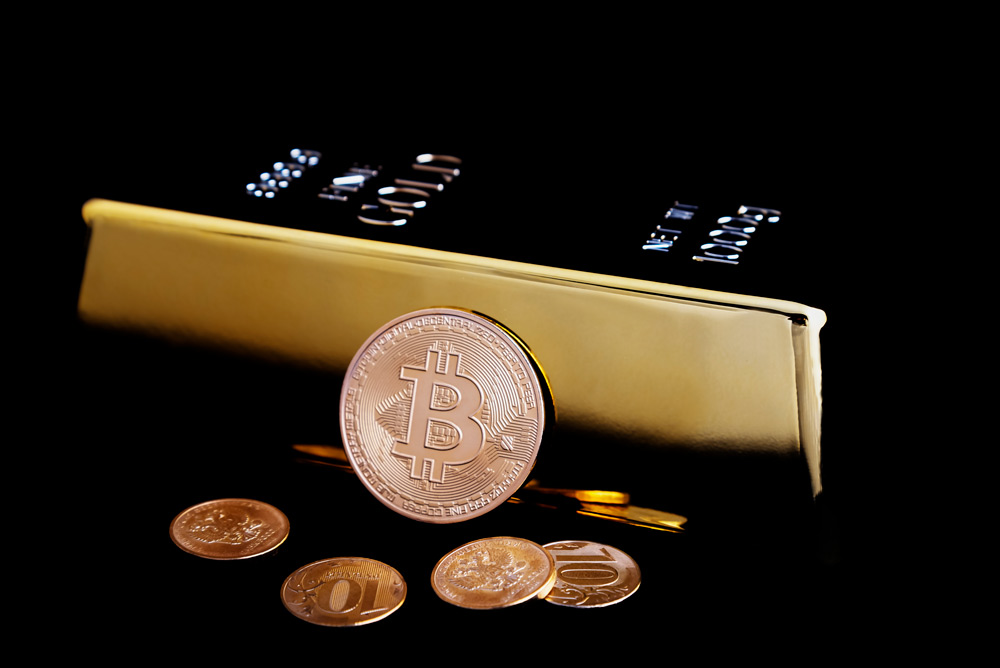By Calum Muirhead
A boom in the price of Bitcoin has reignited a debate about whether it is the next safe asset for investors to park their money, however it may need longer to usurp the dominance of the yellow metal.
The recent market turmoil caused by rising tensions between Iran and the US in the wake of the assassination of a prominent Iranian military commander has had a number of key beneficiaries, particularly the traditional ‘safe haven’ asset, gold.
The price of the yellow metal was 2.8% higher at US$1,578 an ounce in mid-afternoon trading on Wednesday, its highest level for almost seven years, as investors keen to protect their cash from geopolitical instability are parking it in what they consider to be a protected asset.
Haven assets are those that investors tend to park their cash in when they are wary of increasing market risk, as they are deemed more reliable in terms of retaining value. Aside from gold, other traditional examples include US treasury bonds, the Japanese yen, and physical cash.
Meanwhile, another, newer, asset class is seeing its own boom as a result of the uncertainty, cryptocurrency Bitcoin, which has seen its value surge 21% to around US$8,300 since the killing took place last Friday.
The jump in Bitcoin’s value has reignited a debate among certain corners of the market around whether the digital currency could replace gold as the first haven asset class that investors consider during periods of macro uncertainty.
However, while some consider Bitcoin and other cryptos have their place in the investment landscape, they are unlikely to unseat gold’s dominance any time soon.
Bitcoin has versatility and speed
While Bitcoin does not have the long track record or the immediate association with safe value as gold does, there are multiple reasons why investors may consider the digital currency in times of global volatility.
One argument is that unlike physical gold, which is hard to move across borders, cryptocurrency can be transferred digitally, ultimately making it much easier to trade internationally. Bitcoin is also legal tender in an increasing number of jurisdictions, as opposed to gold which is almost impossible to exchange for goods and services.
Bitcoin and other cryptos also offer protection against the devaluation of fiat currencies in times of economic or political distress.
Victor Argonov, analyst at investment firm EXANTE, points to examples of this in countries such as Venezuela and Turkey, where in times of currency devaluation many citizens turned to Bitcoin and other cryptos instead of more traditional haven currencies such as the US dollar.
Another reason for using Bitcoin as a haven is that it tends to increase in value as its user base grows with Argonov saying that around 1mln people currently use cryptocurrencies, with this number doubling every year.
“Even 2018, disastrous as the year was, saw the number of [crypto] users increase from 18 to 35mln. At the same time, the potential new audience is still huge, and in tandem with guaranteed low inflation it usually stimulates growing exchange rates, regardless of the bubbles that may occur”, he says.
But gold’s stability gives it the edge
However, while Bitcoin may seem like its digital form gives it an advantage over gold’s physicality, the yellow metal is still expected to retain the crown as the most popular haven asset in times of turmoil.
One key reason for this is that the reputation of Bitcoin as a store of value has been seriously undermined by a series of price crashes in recent years. In June last year, a loss of service at a major crypto exchange caused the price of Bitcoin to plunge to around US$11,000 from over US$13,500 in the space of one hour.
“I don’t think it likely that Bitcoin will supersede gold as a haven asset because its value is highly volatile, surging and plunging in a way that investors seek to avoid when buying haven assets”, noted Josh Saul, chief executive of Arabian Pure Gold, perhaps unsurprisingly.
“Gold has managed to hold onto its haven status because when there is uncertainly commonly held assets like equities, currency or property become uncertain and therefore people are less likely to invest in them as they are considered more risky…Given Bitcoin is known to be speculative – when uncertainty hits people feel less comfortable taking on that risk”, he adds.
It is this volatility that Saul says will prevent Bitcoin from achieving haven status as “the point of safety is that an asset maintains its value in times of difficulty”, something Bitcoin has yet to prove it can do.
Things could change in the future
While the dominance of gold seems assured, at least for the time being, the future could bring further developments in Bitcoin and crypto markets that could potentially restart the argument once again.
Alexey Kirienko, EXANTE’s chief executive, says that both Bitcoin and gold will ultimately be in play as haven assets, with the former considered for its transferability and ease of storage while the latter benefits from its physical nature and low volatility.
Argonov agrees, saying that while Bitcoin and other cryptocurrencies are currently very volatile, as their use increases this will “greatly decrease and make them more similar to traditional protective assets like gold”, although how close the similarity will be is yet unknown.
Source: Proactive Investors


